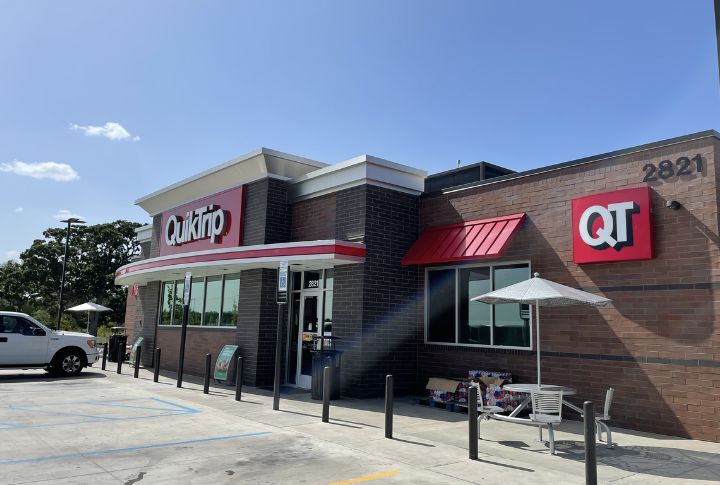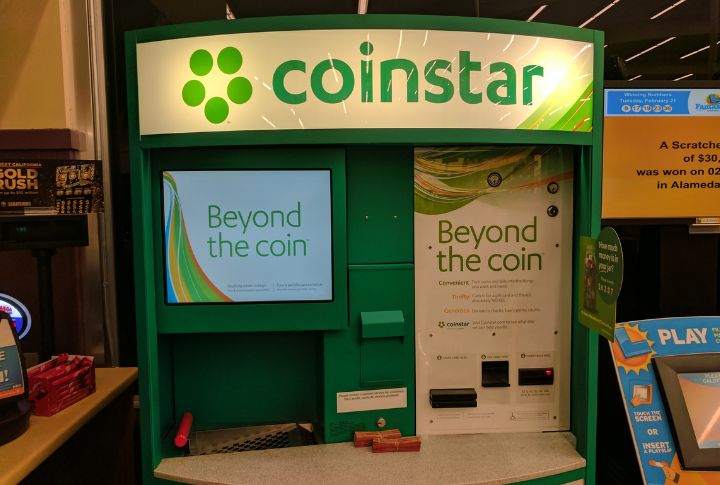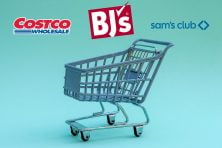Tired Of Spare Change? Here’s Where To Put It to Good Use


Coins pile up in jars, drawers and forgotten corners, but that loose change doesn’t have to stay stuck. Finding places that accept coins without taking a cut can turn that clutter into something useful. This list includes simple spots and smart ideas where spare change becomes a real value, with no hassle involved.
Local Credit Unions

Smaller financial institutions often offer free coin-counting services exclusively to their members. Some even offer self-serve coin machines in-branch. These services are typically located near the teller area and are available during regular banking hours. Unlike big banks, they’re also more likely to waive fees entirely.
Make money easier. Sign up for The Penny Hoarder’s newsletter today.
Local Community Events And Flea Markets

Some community events and flea markets have vendors who welcome coins, especially for small purchases. These gatherings usually operate on a cash-based system, making them a great place to exchange coins for goods or even cash. Vendors may appreciate exact change, and some may even be willing to swap larger amounts for paper currency.
More From The Penny Hoarder: The Dumbest Things We Keep Spending Too Much Money On
U.S. Bank Branches

The U.S. Bank doesn’t openly promote free coin-counting, but many branches accommodate requests from account holders. Teller-assisted exchanges are typical, especially when depositing coins into checking or savings accounts. Several locations in the Midwest and Pacific Northwest provide this service as a courtesy—no machines, just personalized assistance.
More From The Penny Hoarder: Best Cash Back Rewards Credit Cards to Earn Money While You Spend in 2025
Retail Stores Offering Gift Card Exchanges

Big-box retailers sometimes partner with third-party services to offer coin-to-gift-card exchanges at their customer service desk. Some of these in-house systems don’t deduct fees when converting to store credit. Exchanges usually require a minimum coin amount—often $5 or $10—to activate the transaction.
More From The Penny Hoarder: The Best Rewards Credit Cards to Maximize Your Spending in 2025
Community Banks

Smaller community banks are your best bet for a no-fee exchange, especially if you’re a customer. They frequently provide coin-counting machines or staff assistance at no charge. In Oregon, Columbia Bank locations welcome customers with large coin deposits. No fee or appointments are necessary.
More From The Penny Hoarder: Our Picks for The Best Bank Promotions This Month
Bank Of America (Select Locations)

While Bank of America doesn’t provide public coin machines, some branches offer coin-counting for account holders upon request. It’s typically a manual process and may require rolled coins. Coins must usually be deposited directly into a checking or savings account.
More From The Penny Hoarder: Budgeting 101: How to Budget Money
Chase Bank (Rolled Coins Only)

Chase doesn’t provide coin-counting machines, but it accepts rolled coins from account holders free of charge. Most locations hand out coin wrappers if you don’t have your own. While there’s no universal limit, daily amounts must be reasonable. Policies vary, so it’s best to check with your specific branch first.
More From The Penny Hoarder: Our Picks for The Best Budget Apps for Couples
QuikTrip Convenience Stores

A few QuikTrip locations give customers the option to exchange coins at the register, particularly for exact change. Although this is not an official policy, employees accommodate requests when the registers have enough coins. This works best for exchanging small amounts, such as quarters or dollar coins.
More From The Penny Hoarder: 5 Strategies to Consolidate Your Credit Card Debt
Local Casinos

Casinos handle huge amounts of coins every day, especially in states with heavy gaming. You can exchange loose change at the cashier window by showing a valid ID and your coins. There is no need to gamble to use this service. However, during peak times or busy gaming weekends, some casinos may restrict large exchanges.
More From The Penny Hoarder: What is Debt Settlement and How Does it Work?
Local Banks With Kids’ Savings Programs

Banks that offer savings programs for children include coin counting as part of their services. Some even provide branded coin jars and incentives, like stickers or account bonuses, for participation. These programs encourage young savers to deposit change without losing value.
More From The Penny Hoarder: Ditch Overpriced Car Insurance Now — Save $500 Today
Schools And Fundraisers

Elementary schools and nonprofits host coin collection drives, particularly during spirit weeks or charity campaigns. Donating coins through these channels comes with the added benefit of free counting and sorting. Banks sometimes partner with schools to count and credit the coins directly to the fundraiser.
More From The Penny Hoarder: Here’s How to Start Saving Money — Even If You Don’t Have Room in Your Budget
Farmers’ Markets And Local Vendors

Small vendors commonly accept coins, especially at farmers’ markets where cash remains king. They typically welcome exact change for rounded prices and don’t mind smaller denominations. Quarters and dimes are the most effective for smooth transactions. Just be courteous—exchanging large amounts may be better suited for slower times or regulars.
More From The Penny Hoarder: The 28 Best Side Hustles: Our Top Picks to Help You Make More Money
Local Laundromats And Arcades

Coin-heavy businesses like laundromats and arcades occasionally buy coins from customers to stock their machines. While policies vary, some even offer full value in bills. In parts of New Jersey, laundromat owners exchange rolled coins for paper currency—no questions, no fees and often with a smile.
More From The Penny Hoarder: 17 Make-Your-Own-Schedule Jobs You Can Do From Home
Public Transportation Ticket Machines

In cities with cash-operated transit systems, ticket machines usually accept coins for fare payments. If you have a large number of coins, purchasing transit passes or tickets can be an effective way to convert them into usable value without incurring fees. Some machines even provide change in bills.
More From The Penny Hoarder: These Companies Will Give You Food and Other Products For Free (Yes, Really)
Coinstar Machines (Select Retailers)

Coinstar kiosks are found in many grocery stores across the U.S. and let you convert loose coins into digital credit, gift cards or cash. The machines are self-service and easy to use—just pour in your coins, select your payout option and collect your receipt or voucher. These machines are commonly located near store entrances or customer service areas.
More From The Penny Hoarder: Smarten Up, Americans. No Offense But Millions of Us Haven’t Used These Money Secrets












